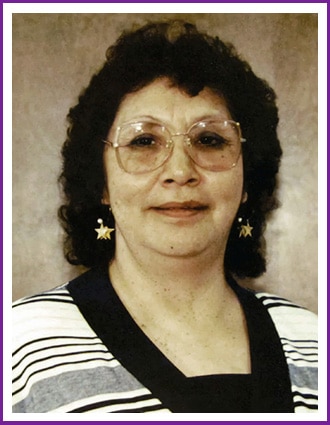DOROTHY B. (Kakaruk) ISABELL

• Native Culture
Inducted: 2023
Deceased: 1996
DOROTHY B. (Kakaruk) ISABELL
Dorothy Isabell was one of three Directors of the first Norton Sound Health Corporation (NSHC) formed in 1970 when the Alaska Federation of Natives (AFN) selected them as a first set of communities to develop a model for community-based health care services and give Alaska Native a voice in their own health care decisions. William Dann, who was instrumental in helping to establish NSHC in 1970 and became the first CEO, described Isabell as a very important player in those early days and a tough negotiator with the Indian Health Service and the Office of Economic Opportunity in Washington D.C. for contract funds and further grant funding to expand the health services[1].
In 1971, the Health Aide program was established, and Isabell became a NSHC Health Aide Assistant Trainer. She traveled to many villages in the Norton Sound region to organize health clinics, and Carolyn Crowder, who later served as the CEO of NSHC for twenty years, was a summer intern with Isabell when Crowder was in high school. “Dorothy took me under her wing and was a wonderful teacher and mentor,” Crowder shared. “She had a great passion for health and for Alaska Natives providing health care for her own people. She implanted in me the first seed of self-governance and jump-started my whole career in health care. I carried on my life’s work with the belief that she instilled in me.”[2]
Isabell worked with Registered Nurse supervisors in setting up health clinics in the villages of Norton Sound, meeting with Village Councils and providing basic training with new volunteers.
She followed up with all aspects of health care, working with alcohol abuse issues in the villages and providing alcohol awareness workshops for communities and schools. When the first women’s shelter opened in Nome, she coordinated services for domestic violence there for the first months. She served on many community boards, such as Mary’s Igloo Traditional Council, Mary’s Igloo Native Corporation, Teller Native Corporation, Bering Straits School Board, Bering Straits Community Partnership, and Women’s Spirit Rising Committee. She was always an advocate for caring for the Elders and children of the communities, and she coordinated the Quyanna Care Center’s (QCC) Elder’s Summer Picnic, a salmon traditional meal day.
Isabell was born at Pilgrim Hot Springs, a Catholic Church mission, where her parents, Annie and David Kakaruk, were caretakers; she was raised in Mary’s Igloo and Teller, Alaska. Isabell lived all of her life in Alaska except for two years in California, 1964-66, and she impacted the health care and lives of Alaska Natives in the Bering Strait region, Teller, Nome, and all fifteen Norton Sound Villages. She had three children, Emily Hughes, Rhonda, who drowned tragically at age five, and James Kevin Isabell.
Isabell was instrumental in NSHC becoming the first in the nation to have tribally owned and run hospital care, and she traveled to Washington D.C. several times to tell the story of health care needs of Alaska Native people in remote areas. She was passionate about the importance of setting up local health care organizations, but also about women being engaged in their own communities. She transmitted those values to her daughter, Emily Hughes, who nominated her for this award. Hughes is now a Director for NSHC, and while Carolyn Crowder was CEO, Hughes was Chairperson of the Board. At a critical time when the organization was in negotiations with the IHS to include nursing home services into their compact, Crowder shared this: “Emily gave an impassioned speech that felt like it came from her mother’s mouth. These are our Elders!” It changed the outcome allowing Tribes to include long term care in their agreements. This benefited not just for NSHC but also for Tribes all over the U.S.
LaVonne Hendricks was hired as a young Itinerant Public Health Nurse in Nome and became one of those RN supervisors when she took her first of many village trips with Isabell: “Dorothy worked at a time when things were pretty primitive. Communication with doctors didn’t always work like it does now, and she had to use her own good judgment.” Hendricks went on to share that Isabell was always attuned to the Inupiaq way of doing things, as well as the White Man’s way. She was able to walk in both worlds with one spirit. She understood her village and her people and helped change how healthcare was delivered in Alaska Native villages.[3]
[1] Interview with William Tann, July 28, 2023.
[2] Interview with Carolyn Crowder, July 26, 2023. Crowder continues to consult with tribal organizations on opportunities to assume the management of their own health programs.
[3] Interview with LaVonne Hendricks, July 26, 2023.
